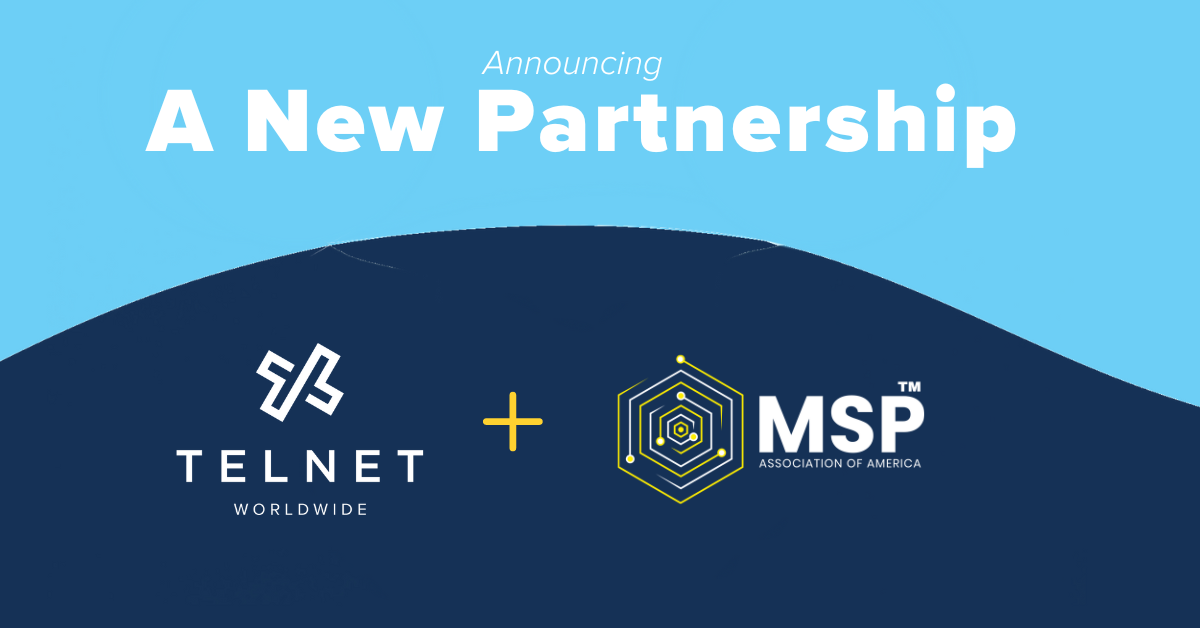TelNet Worldwide’s President and Founder Mark Iannuzzi traveled to Washington, DC this month to attend the INCOMPAS 2020 Policy Summit. He sat down with Manager of Marketing Katie Dudlets to discuss this year’s event, key takeaways and his outlook on the future of the communications industry.
Q: How would you describe the INCOMPAS Policy Summit to someone who’s never attended before?
A: Well, first of all, you have to understand the nature of the organization. INCOMPAS is a trade association wherein [telecommunication] companies like TelNet Worldwide from around the country come to have their voices heard by the policymakers in Washington.
The Policy Summit is an annual event that they hold in Washington and it brings in a host of different people. We get people from Congress coming in and talking about what their positions are. People are invited in from our legislative branch and from the FCC. They’ll come in and talk about what’s going on from their perspective. There are panel discussions that take place to address questions and answers. It’s different industry people who would otherwise not have their say.
Q: So, from the perspective of a communications service provider, what is the goal of the INCOMPAS Summit? To gain information? To influence policy?
A: So one is learning, the other one is advocating, you know, giving your story, and the other is a networking opportunity. Because there are people who are of kindred spirits like us. So you get the chance to meet people who I might not have otherwise been able to meet and see how we can help each other out. So I guess really, that’s it. We’re there to learn, network and tell our story.
Q: So essentially, the Policy Summit allows various heads of the industry to come together to learn and share perspectives on the policies.
A: Yes, to learn and to cultivate perspectives on these different policies. So for example, there’s two key things that are taking place right now. One of them has taken place here in the last year and a half. AT&T and Verizon and all these guys like that, they basically said, “Hey, we shouldn’t have to allow wholesale access to our network anymore. And the reason why is because all these competitors have now caught up to us customers about there will be just fine. Businesses and customers would not be in harm’s way if we didn’t have to lease this stuff to them anymore.” Well, it’s categorically false. But these guys are big companies and they have the ability to go out there and get their way in Washington. So now you’re in the capital, right. You’re dealing with politics. You’re dealing with people who have lots of money who can influence policy makers. So the yin and yang of this here is that you got this force coming at these policy makers and if it’s not for the little guy who actually lives in the real world actually having that voice… We have to counteract that. So they have their claims and then we come out there with our data and say, “Hey, you’re just wrong. This won’t be in the public interest to take away these resources from the competitors because at the end of the day, it’s going to hurt the consumers and businesses. Their prices are going to go up and their services are going to go down. And as policy makers, you’ve got to decide whose story you’re going to believe.” So that was one of the key things going on there.
The other key thing going on there is this illegal robocalling and spoofing and what carriers like TelNet Worldwide are doing to mitigate that. So we got some good stuff going on, but then you’ve got another counteracting thing that guys like AT&T and Verizon… They’re trying to get permission to block calls based upon a limited set of data. And that could harm competition because basically what happens there is that, if the FCC allows them to block calls because they think that it’s a bad call, they could discriminate against phone calls coming from our customers. They could say, “Hey this is not one of my subscribers calling, it’s somebody else’s subscriber, so I’m just going to block that call and claim that I’ve done it based on basically good analytics.” So we were over there trying to explain why they can’t let them do that. You’ve got to make sure that the cure is not worse than the disease.
So those are two key policy things going on right now.
Q: From this year, what was your primary takeaway?
A: My primary takeaway was we’ve got a lot of work to do. When I was out there back in September, I met with an FCC chairperson and he unfortunately is pro-big companies. So, we could be as right as rain on this issue, which we are. But if that guy doesn’t give two hoots, which it doesn’t look like, it doesn’t matter. But I’m there to make sure we at least try.
The other thing is if you go and hang out with competitors, and you see what’s going on right now, it’s very inspiring. I have always come away in awe of what some of these companies have been able to do and where they do it. It’s like you’ve got to be a MacGyver. These people are making stuff out of nothing, man. And a lot of it is in rural America, where there aren’t really a lot of options.
Q: Can you give me an example of some of the stories you found so inspiring?
A: One of the examples was a company out of Kansas. They were looking at how they could bring fiber to certain neighborhoods, and what they did was called a fiber-copper hybrid. So [they] would take fiber almost into the neighborhood and then they would use the copper that’s there to get into the homes and so forth. And that was really cool.
Another company was out of San Francisco called Sonic. Their story was interesting because if you look at places like Detroit and San Francisco, there’s actually a lot of pockets in these places where you would think you’d be replete with broadband, [but] it’s actually not. So this company out there in San Francisco was showing how they would go into different parts of the city, how they would use the legacy copper plan in order to gain a certain critical mass of customers and then how they were able then to go and put the fiber into these neighborhoods.
Q: What’s your outlook on the future of the industry, based on what you heard earlier this week?
A: These things go in cycles. I think we’re going into a trough, where the entrenched incumbents have the favor of the policy makers. So you’re in this kind of pit of despair, but it’s a cycle. And I believe that as that starts to run foul, you’ll then start to see people get more behind the competitive environment. Competition is where innovation comes from, it’s where choice comes from, and so, the outlook progresses toward more choice and more innovation. So, the long term? It looks good. Right now? It’s kind of like seasons. It’s like we’re going into winter. But as long as you are braced for it… [For those who aren’t prepared], it’ll be unfortunate though, because you’ll see some people get hurt in the process. You’ll see carriers out there who won’t be able to adapt properly. Or businesses, like our customers — they’ll be the ones in harm’s way right now. It’s not going to be a fun day for them when all of the sudden their bill goes up five times. But see, that’s unfortunately what happens.
For every one of the members that belong to INCOMPAS, there’s probably 50 other companies that don’t participate. They’re unable to because it takes time and money to go to Washington and do these things. Most people like myself would rather be here working on their business. Some of them, it’s just not their gig. They wouldn’t know how to participate. So it’s unfortunate because you have all these other voices that could be heard, so you have to make sure you’re making up for that.




